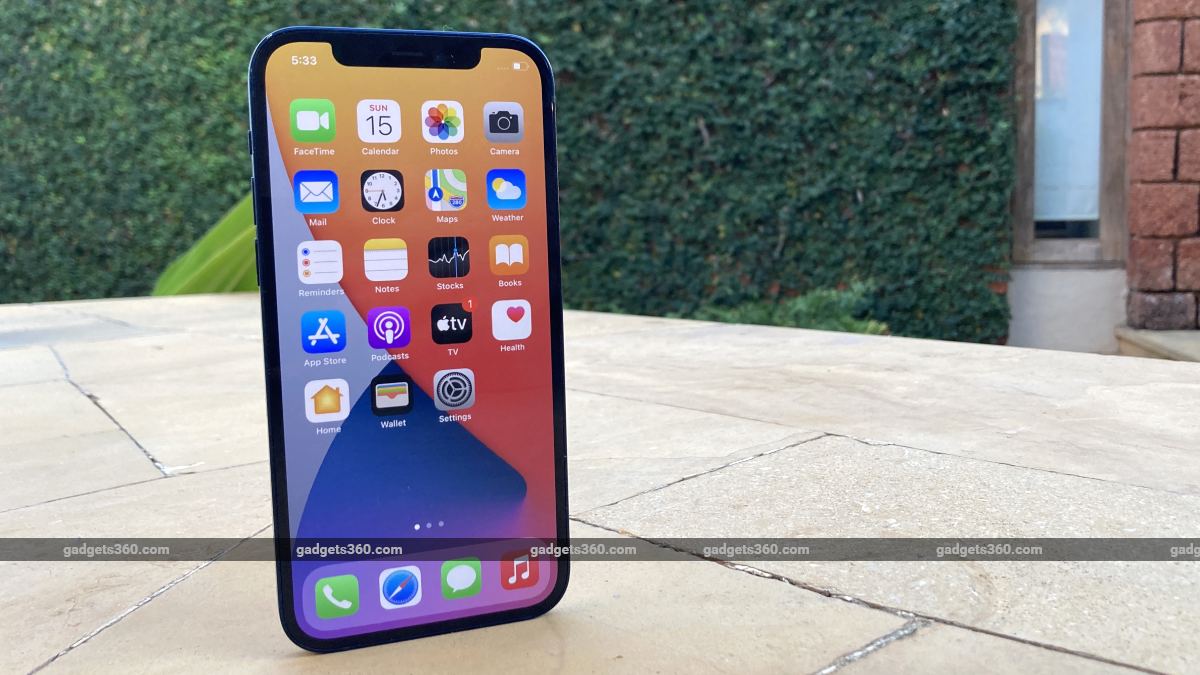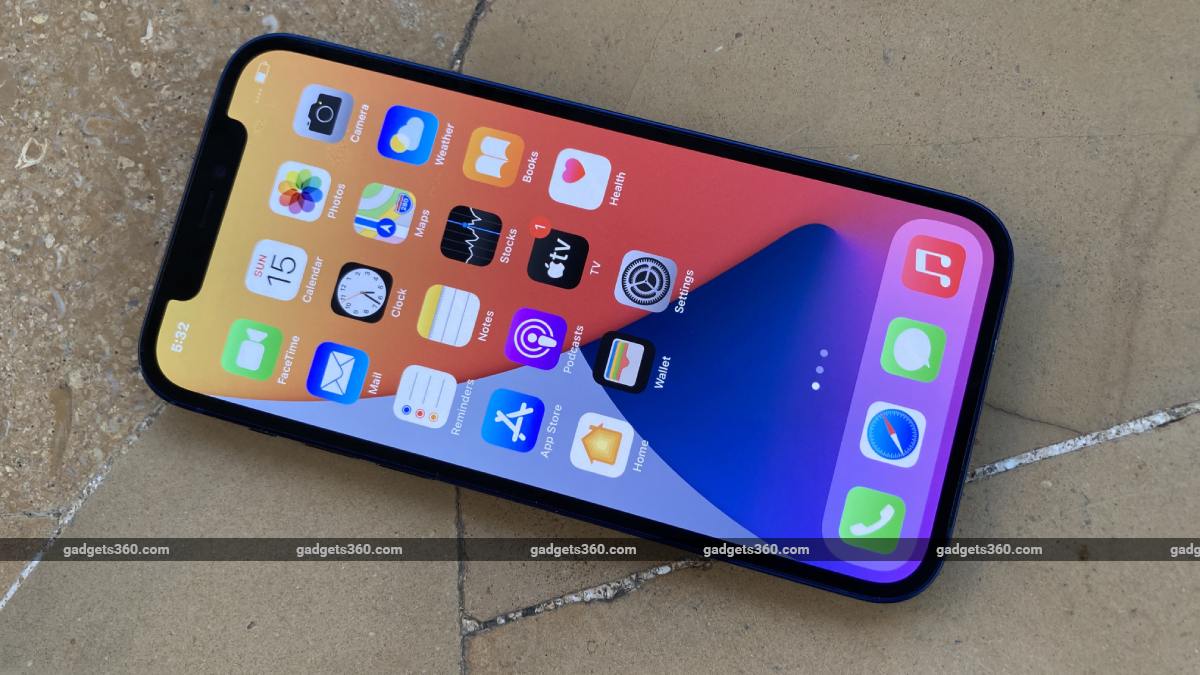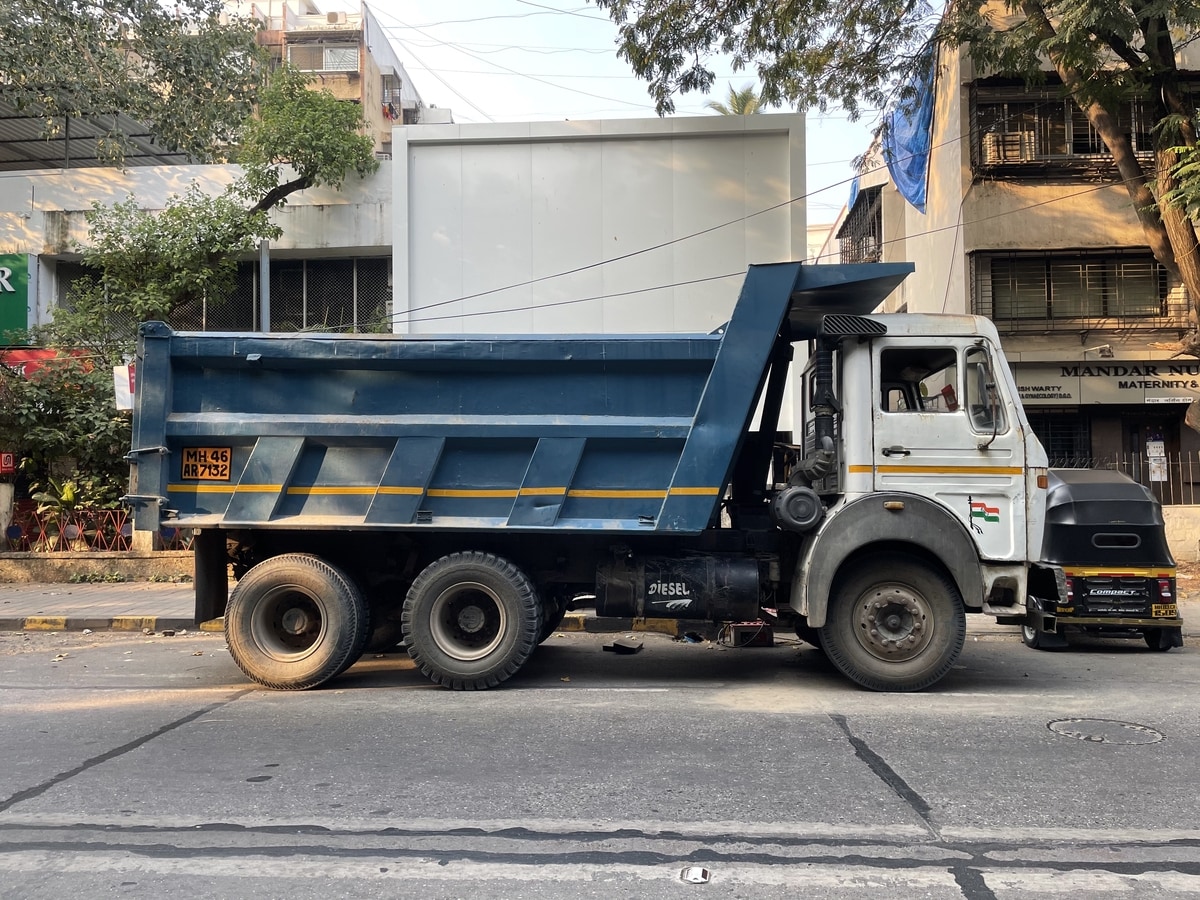Of the four members of the new iPhone 12 family, the base iPhone 12 might be easy to overlook. It isn’t a radically different size, it doesn’t have the highest-end camera system, and it is perhaps the most iterative in terms of updates in the new portfolio. This isn’t a simple upgrade to the iPhone 11 though; launching at a much higher starting price, it creates a new tier in Apple’s lineup. You could see it as a step up from the iPhone 12 mini, but much like there are two sizes of Apple Watch, the differences between these models are more to do with personal preference than capabilities.
Should you spend Rs. 10,000 more on the iPhone 12 than the iPhone 12 mini (Review)? Should this be your natural upgrade option if you’ve got an older model? What exactly does this model lack compared to the much more expensive, yet very similar iPhone 12 Pro (Review)? I have all these answers and much more.
iPhone 12 price and positioning in India
Prices have gone up across the industry thanks to a GST rate increase and fluctuations between the US Dollar and Indian Rupee. However, Apple has also decided to bump up the base price, leaving the iPhone 12 mini in the slot we expected the iPhone 12 to fill. That means you’ll have to spend a bit more than you might have anticipated if you don’t want the smaller model. The iPhone 12 price in India starts at Rs. 79,900 for 64GB, and goes up to Rs. 84,900 for 128GB and Rs. 94,900 for 256GB.
What’s interesting is that the iPhone 12 Pro price starts Rs. 40,000 higher at Rs. 1,19,000 (which is a much wider difference in India than elsewhere in the world, for reasons that Apple declined to clarify when asked). The iPhone 12 Pro has a stainless steel frame rather than aluminium, twice as much storage per tier, and a 2x optical telephoto camera plus a LiDAR sensor which has some applications for AR and low-light photography. It’s also capable of higher maximum screen brightness, 60fps Dolby Vision HDR video recording, Night mode portraits, and ProRAW photo capture. If none of these features matter to you, the much lower-priced iPhone 12 with exactly the same SoC, battery, and other camera hardware suddenly seems like a pretty compelling alternative.
Do keep in mind that none of the new iPhone 12 models come with a charger or headset in the box. You might want to pick up a MagSafe wireless charging pad, plus one of Apple’s own chargers if you don’t have a Type-C adapter lying around, and to get the fastest possible wireless charging. These, plus a case and maybe a pair of AirPods, will all add to the price you end up paying.

Battery life is better with the iPhone 12 than with the iPhone 12 mini
iPhone 12 design
We return to a completely flat front and back, as well as a flat frame running around the perimeter of the iPhone 12 family. This is somewhat like the iPhone 5 generation, but without even bevelled or chamfered edges meeting the display glass. If you choose one of the brighter colour options, you’ll see the metal frame around the edges of your device. That means the front and rear panels are more protected, but I suspected that the frame would likely get scuffed or dented without a case, and that’s exactly what happened within a week of using the iPhone 12.
Apple says its new Ceramic Shield material, used on the front, is four times more resistant to damage in case of drops, but that doesn’t mean it’s scratch-resistant. You also get an IP68 rating for water and dust resistance, and this phone did survive being tossed in a swimming pool and even being used to record video underwater for several minutes during the review period.
The lack of rounded edges means that the iPhone 12 does feel a little less comfortable in the hand and against the ear than the iPhone 11 (Review). However, it is considerably smaller in all dimensions, especially thickness, and also quite a bit lighter. At just 7.4mm thick and 162g, the differences are immediately noticeable. If you’re talking on the phone, playing games, shooting video, or even just scrolling through endless feeds, the iPhone 12 is an ergonomic improvement overall.
One-handed usage isn’t much of a problem, since thankfully the glass rear panel isn’t slippery. Without a case, the two camera rings on the rear do protrude quite a bit, which is a cause for concern. You get the usual power button on the right, and volume buttons plus mute switch on the left. There’s a Lightning connector on the bottom and invisible MagSafe magnetic ring on the back for Apple’s new line of wireless charging accessories. There’s a single Nano-SIM tray but you can use an eSIM if you need a second line.
iPhone 12 specifications and software
We’re now quite familiar with Apple’s A14 Bionic SoC, which can be found across the iPhone 12 lineup and in the new iPad Air (2020). It has two high-performance and four energy-efficient CPU cores, a quad-core GPU, next-gen “Neural Engine” AI logic, and more. Apple claims that this 5nm chip is not only the fastest current smartphone processor, but also incredibly power efficient. The big push with this generation is machine learning, which can be used to accelerate on-device AI to make apps and the UI itself more personal and secure.
One of the most noticeable upgrades that the iPhone 12 introduces is its screen. Apple has used almost exactly the same OLED panel on this device as on the iPhone 12 Pro, in stark contrast to previous generations in which lower-end models were saddled with noticeably lower-resolution LCD screens. This makes the iPhone 12 feel a lot more premium than its predecessors.
The 6.1-inch 1170×2532 HDR panel supports the wide P3 colour gamut and Apple’s True Tone ambient light adjustment feature. The notch at the top is pretty huge by today’s standards, and it’s definitely annoying when watching videos fullscreen, but it isn’t otherwise much of a problem if you’re used to using any fairly recent iPhone. A high refresh rate would have been nice, but that remains an advantage for the Android camp for now.
Apple doesn’t officially disclose things like battery capacity and amount of RAM for its products, but we know from third-party teardowns that the iPhone 12 has a 2,815mAh battery and 4GB of RAM. You can choose between 64GB, 128GB and 256GB of storage – considering the prices, the base model really should have had more, but cloud and streaming services these days have alleviated a lot of the pain of running out of space.
The entire iPhone 12 family supports sub-6GHz 5G, which isn’t a selling point now, but will hopefully be useful in India in the near future. There’s also Wi-Fi 6, Bluetooth 5, Ultra-wideband positioning, GPS, and NFC, though Apple restricts how some of these standards can be used.
iOS 14 runs exceptionally smoothly without a hint of hesitation. The UI is responsive and animations are super slick. Apps load quickly, even if they haven’t been used in a while. You do get more customisation options and built-in features (including some localised ones) than with earlier versions but you still have to learn to do many things Apple’s way. Despite the high prices of iPhones, iOS 14’s stability and longevity, as well as its privacy features, do keep a lot of people within the fold.
Much of the appeal of iPhones is down to Apple’s various apps and services including iMessage, FaceTime, and iCloud. The company pushes its Apple Music, Arcade, and TV+ subscriptions heavily, and some of the notifications can get annoying. You can claim three free months of Apple Arcade and an entire year of TV+ with the purchase of any new iOS device, but iCloud storage is limited to 5GB without a paid subscription.

The aluminium frame is prone to scuffs and dents
iPhone 12 performance and battery life
It shouldn’t be any surprise that performance in everyday use was absolutely faultless. Everything from Face ID authentication to loading heavy games and switching between apps felt effortless. There isn’t much these days that really stresses out even mid-range phones, but the A14 Bionic still completely demolishes expectations in terms of responsiveness and fluidity.
That said, everything isn’t perfect. Even in normal use, I felt the back of the iPhone 12 get slightly warm. It wasn’t a problem, but it was noticeable. When pushing the A14 Bionic SoC to its limits in games and tests, the back and metal frame did get quite toasty, and this might be uncomfortable for some people over long stretches. A case might help mitigate this to some extent.
Benchmarks showed that Apple isn’t kidding when it talks about performance. AnTuTu reported a score of 5,68,462 while Geekbench 5’s single-core and multi-core scores were 1,563 and 3,675 respectively. As for graphics, every scene in GFXBench ran at 58fps or better, except for the highest-end Aztec Ruins (High Tier) test which managed 48.8fps. The new 3DMark Wild Life test also ran quite well, with 6660 points overall. In our iPhone 12 mini review, I pointed out that the Wild Life stress test revealed a drastic performance drop after just a few loops – the iPhone 12 did considerably better, but the stability score still dropped to 71.2 percent.
Call of Duty Mobile and Asphalt 9: Legends ran fine, aside from the body getting a bit warm. Casual games such as Alto’s Odyssey and Lara Croft Go were a lot of fun. You won’t have any trouble staying entertained, though you will have to supply your own Bluetooth earphones or recycle a headset with a Lightning connector from an older iPhone.
The display is bright, crisp, and engaging. Videos and games look great, apart from the large notch often getting in the way. Colours really pop in HDR videos, and this is one of the key areas in which the iPhone 12 is a significant upgrade over its predecessors. The stereo speakers produce surprisingly full and detailed sound, and although bass is weak there’s no distortion even at high volumes.

iOS 14 is more customisable than previous versions and has new privacy features
Battery life is not especially great but you can comfortably get through a full day and maybe have some power left over for the next morning. If you play games for an hour or so, stream lots of music, check social feeds and take lots of photos and videos, you’ll probably want to plug this phone in (or snap on a MagSafe pad) each night. The iPhone 12 lasted for a reasonable 14 hours, 32 minutes in our HD video loop test, beating the iPhone 12 mini by only a small margin and coming in slightly behind the iPhone 12 Pro with the same capacity battery. I wasn’t able to test charging speed in any meaningful way since Apple doesn’t bundle a charger anymore and buyers will use various adapters with different output ratings.
iPhone 12 cameras
You get the same arrangement of cameras as on the iPhone 11 – a 12-megapixel wide-angle primary camera and an additional 12-megapixel ultra-wide-angle one on the rear, plus another 12-megapixel sensor for the front camera. Other than generational improvements, the main difference in specifications is in the aperture of the primary camera, which is now f/1.6 for better low-light shots. On the software side, you can now use Night mode and Deep Fusion on all three cameras, and you can record Dolby Vision HDR video at up to 30fps.

iPhone 12 daytime photo sample (cropped)
The main benefits are better performance and more versatility in low light. Most of Apple’s camera tricks work in the background – you don’t get to choose when Deep Fusion is active, but it will combine multiple exposures using what Apple calls “computational photography” to produce a single, well-exposed frame. Night mode isn’t a separate mode that you need to select; it just kicks in when needed. This is exactly the same experience you’ll have with the iPhone 12 mini, and unsurprisingly, results are pretty much exactly the same with both phones.
Daytime shots came out looking crisp and bright, with colours that were vibrant but not oversaturated, and decent amounts of detail even in distant objects. The ultra-wide-angle camera does a great job, and photos have the same general tone and minimal distortion at the edges, though definition is noticeably weaker. Close-ups have excellent natural-looking depth of field. The iPhone 12’s primary camera’s biggest strength seems to be its ability to reproduce extremely fine detail in close-ups, even when there are complex exposures to deal with.
iPhone 12 daytime photo sample (top: wide-angle; bottom: ultra-wide-angle)
Portrait mode works with humans and pets, and the background is aesthetically de-emphasised. It is s sometimes a bit fussy when locking on to a subject though, and edge detection isn’t great with irregular objects such as flowers. You can adjust the background blur and portrait lighting effects after taking a shot. Shooting ordinary close-ups is effortless in contrast, and far more flexible in terms of framing, but you don’t get the same lush effect and tweaking options.
iPhone 12 daytime close-up photo sample
As for low-light shots, the iPhone 12 truly excelled, revealing details in landscapes that were completely invisible to the naked eye. With barely any ambient light around, this phone was able to reveal sharp detail in close-ups and surprising contrast in landscapes. The default delay is 2-3 seconds but you can push this up to 29 seconds, which is only advisable if you’re using a tripod. On a moonless night, I was able to capture stars as actual points, and not just blotches against the black sky.
iPhone 12 Night mode photo sample
iPhone 12 Night mode photo sample (using tripod)
Video is recorded in HDR by default, and you’ll need to visit the main iOS Settings app to override this. It comes out looking smooth and vibrant at 1080p as well as 4K, with very little jerkiness thanks to the primary camera’s optical stabilisation. You can get pretty good results with the wide-angle camera as well, in the daytime and at night.
Selfies are also sharp and detailed, and Night mode helps you capture usable (though slightly grainy) shots even in dark corners with very little light around.
iPhone 12 selfie samples (top: daytime portrait; bottom: Night mode)
Verdict
The iPhone 12 is a solid, competent phone but it is also very expensive. Along with the iPhone 12 mini, it’s clearly positioned as a premium option, with its slick new body, excellent high-resolution OLED screen, and flexible cameras. The choice between the two siblings will come down to personal preference in terms of handling and screen size, but you should also consider the difference in battery life.
If you’re currently using an iPhone 11 or iPhone XR, chances are you won’t gain much by upgrading at the moment. For users of older models who have been waiting for a good reason to upgrade and intend to hold on to their purchase for at least three years, both the iPhone 12 and iPhone 12 mini will feel fresh and offer great performance for at least that long.
You should also consider that you get nearly all the capabilities of the much more expensive iPhone 12 Pro at a far lower price. Unless money is no object or you’re very serious about photography and video recording, the iPhone 12 should serve all your needs.
Last year’s iPhone 11 and even the two-year-old iPhone XR still selling for considerably less. These are actually the strongest competitors to the iPhone 12, especially if you consider value for money (and that’s even more apparent when they go on sale). Sure, they don’t have all the latest and greatest features, but they do most of what the iPhone 12 does, and they’ll receive regular software updates for at least a few more years.
Will iPhone 12 mini become the affordable iPhone we’ve been waiting for? We discussed this on Orbital, our weekly technology podcast, which you can subscribe to via Apple Podcasts, Google Podcasts, or RSS, download the episode, or just hit the play button below.







